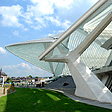FORT BATTICE
Liege Defense Bunkers of 1940
 At the end
of the 19th Century, with fresh memories of border fights for royal
succession and growing mechanized military nations across Europe
itching for expansion, a defensive belt comprised of twelve forts in
all was built surrounding Liege to guard from possible attacks from ancient
enemies, either Prussia to the East or France to the south. After the
brutal experience of the First World War (see Flanders
Fields WWI Trenches), even
after King Albert's 1914 rallying the Belgians to remember the courage
of the Walloons at the medieval Battle of Francimont (see Francimont
Castle), during the 1930s, as the menace of invasion grew even more upon
the rise of Hitler and the Nazis with eyes on the rest of Europe, a decision
was made to reinforce Liege's earlier line of defenses with the addition
four state-of-art military forts.
At the end
of the 19th Century, with fresh memories of border fights for royal
succession and growing mechanized military nations across Europe
itching for expansion, a defensive belt comprised of twelve forts in
all was built surrounding Liege to guard from possible attacks from ancient
enemies, either Prussia to the East or France to the south. After the
brutal experience of the First World War (see Flanders
Fields WWI Trenches), even
after King Albert's 1914 rallying the Belgians to remember the courage
of the Walloons at the medieval Battle of Francimont (see Francimont
Castle), during the 1930s, as the menace of invasion grew even more upon
the rise of Hitler and the Nazis with eyes on the rest of Europe, a decision
was made to reinforce Liege's earlier line of defenses with the addition
four state-of-art military forts.
 The forts
in four directions from Liege, Eben-Emael, Aubin-Neufchateu, Tancremont
and
Battice, were rebuilt from 1934 to 1937 on the sites of
outdated fortresses from 1914, redesigned with thickened steel reinforced
concrete walls, built to withstand a 520mm shell, earthen embankments
and modern gun pillboxes to meet the new advancements of mechanized warfare.
Fort Battice was nearest the German border and most likely to take the
brunt of an assault on Liege (see Ludendorff Bridge at Remagen).
The forts
in four directions from Liege, Eben-Emael, Aubin-Neufchateu, Tancremont
and
Battice, were rebuilt from 1934 to 1937 on the sites of
outdated fortresses from 1914, redesigned with thickened steel reinforced
concrete walls, built to withstand a 520mm shell, earthen embankments
and modern gun pillboxes to meet the new advancements of mechanized warfare.
Fort Battice was nearest the German border and most likely to take the
brunt of an assault on Liege (see Ludendorff Bridge at Remagen).
 In May of 1940, Fort Battice sustained
a 12 day "Blitzkrieg" siege of heavy German Artillery and Stuka
Dive Bombers. Seven-hundred Belgian solders, cramped like moles in the
fifteen concrete bunker complex, including the main fort, armored observation
posts and outposts, resisted the enemy attack, mostly with nothing to
shoot at, as the German infantry and tanks held back, just pounded by
shells and bombs. A tenth of the men were killed in the fort, including
26 at once in the main fort "Block 1" when a bomb richocheted
off the anti-tank rails at the entry and penetrated the concrete combat
bunker door, making for the bloodiest event of the German's storming
of Liege. The fort surrendered shortly thereafter on May 22, 1940, opening
the German rapid advance of World War II on the western front, and like
France's Maginot Line (see Maginot
Line Forts Hatten), the defensive fortress
idea from the 19th Century was proved forever obsolete.
In May of 1940, Fort Battice sustained
a 12 day "Blitzkrieg" siege of heavy German Artillery and Stuka
Dive Bombers. Seven-hundred Belgian solders, cramped like moles in the
fifteen concrete bunker complex, including the main fort, armored observation
posts and outposts, resisted the enemy attack, mostly with nothing to
shoot at, as the German infantry and tanks held back, just pounded by
shells and bombs. A tenth of the men were killed in the fort, including
26 at once in the main fort "Block 1" when a bomb richocheted
off the anti-tank rails at the entry and penetrated the concrete combat
bunker door, making for the bloodiest event of the German's storming
of Liege. The fort surrendered shortly thereafter on May 22, 1940, opening
the German rapid advance of World War II on the western front, and like
France's Maginot Line (see Maginot
Line Forts Hatten), the defensive fortress
idea from the 19th Century was proved forever obsolete.
 Fort
Battice is mostly grown over, grass in the wide trenches clinging to
cracked, rust stained walls, standing against time.
A few of the gun ports have been restored in the main bunker block
with
articulated
60mm cannons.
There
is a small
historical display and the soldiers quarters are 30 feet underground
with most of the inside furnishings long ago sold off by a scrap merchant
in the 1960s. Guided tours
inside the bunkers are given on the last Saturday of every month starting
at 1:30 pm, from March to November, but the fort
is still quite impressive and haunting even when it isn't open.
Fort
Battice is mostly grown over, grass in the wide trenches clinging to
cracked, rust stained walls, standing against time.
A few of the gun ports have been restored in the main bunker block
with
articulated
60mm cannons.
There
is a small
historical display and the soldiers quarters are 30 feet underground
with most of the inside furnishings long ago sold off by a scrap merchant
in the 1960s. Guided tours
inside the bunkers are given on the last Saturday of every month starting
at 1:30 pm, from March to November, but the fort
is still quite impressive and haunting even when it isn't open.
The Fort De Battice is located just off the A3 auto route between Aachen and Liege where it intersects with the A27 into the Ardennes. The American and Allied Cemetery at Henri-Chapelle is 5 miles away (see Battle of the Bulge Cemeteries and Monuments). © Bargain Travel Europe
Find best vacation and hotel deals in Liege on Trip Advisor
Web Info
Wallonie
Tourism
These articles are copyrighted and the sole property of Bargain Travel Europe and WLPV, LLC. and may not be copied or reprinted without permission.
SEE ALSO:
BASTOGNE - BATTLE OF THE BULGE
AU VIEUX DURBUY & SANGLIER DES ARDENNES
KAISER WILHELM'S MECHANIZED FORT MUTZIG
BELGIAN MILITARY MUSEUM - BRUSSELS
GARE LIEGE-GUILLEMINS - NEW RAIL STATION
MAGINOT LINE FORTRESS SIMSERHOF – MOSELLE

